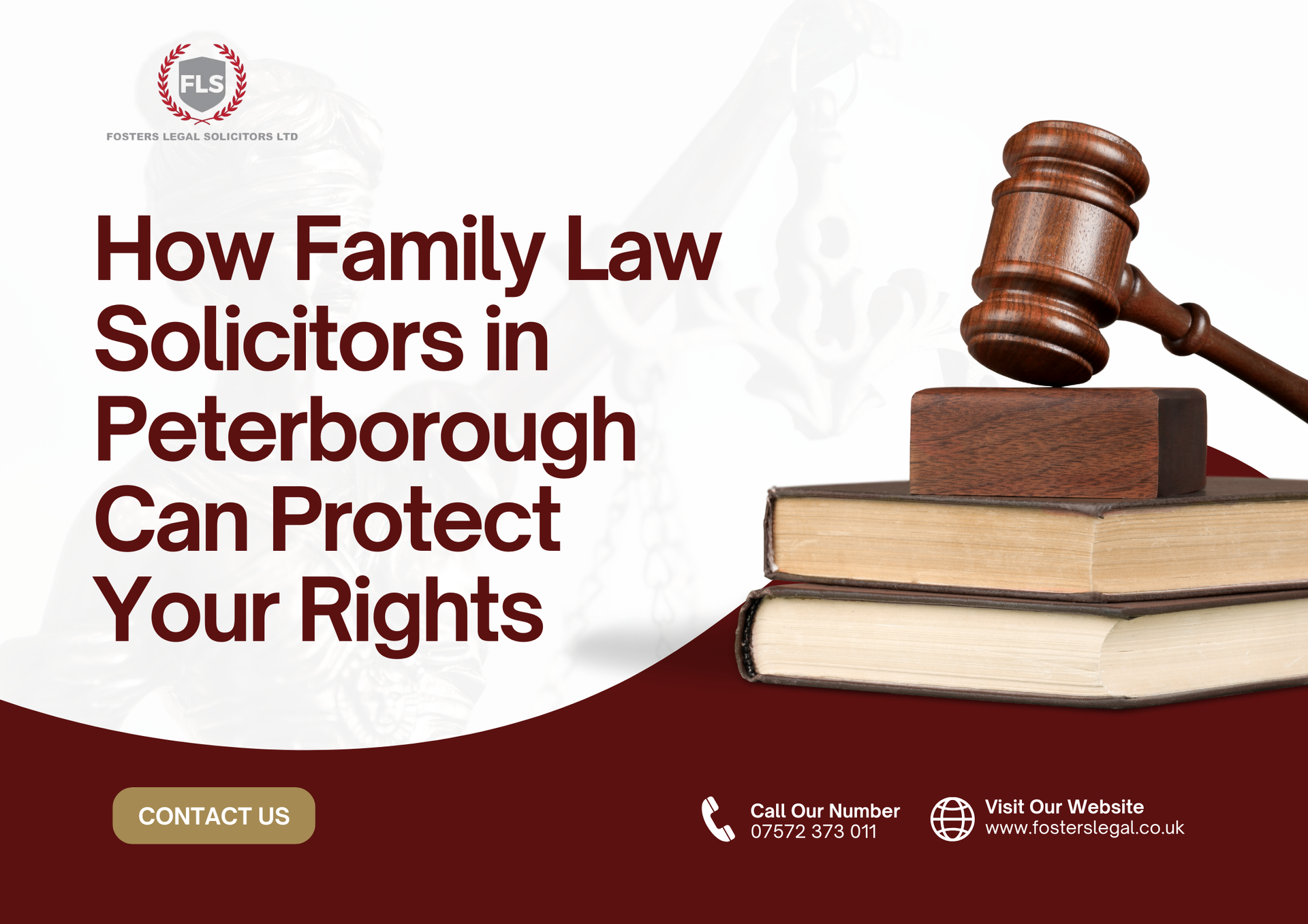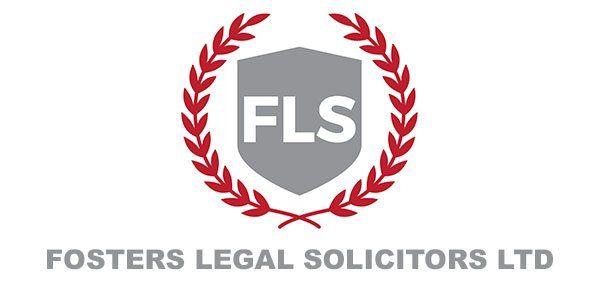What Is Mediation Or Arbitration In Family Law? Everything You Need To Know
What Is Mediation Or Arbitration In Family Law? Everything You Need To Know

When conflicts in the family are taken to court, it can be very disturbing both emotionally and mentally. Numerous families prefer not to be in court but to live peacefully without hearings and costly legal sessions. That’s why one should be aware of basic legal terms like what is mediation and arbitration mean in family law.
Mediation and arbitration will allow you to resolve your family issues out of court. This blog provides an overview of how each of them works, what you should anticipate and how a
family law solicitor will assist you in a manner that is understandable and clear.
Firms like Fosters Legal Solicitors have years of experience with families all around the UK, and we understand that the right way to convert a conflict into a closure. Having conflicts about money or property or ways of bringing up the children, this guide helps you with the choices available to you in such a manner that you choose the way that will leave your family peacefully
What is Mediation?

Wherever and whenever family is involved, it does become a sensitive issue. And when families are parting ways, it is full of emotions.
Mediation is an easy and practical dispute resolution method without involving a court appearance. It is voluntary. The mediation is a professional mediator who helps both partners to discuss their issues and reach mutual decisions. It is not fighting, but about talking. A mediator does not make decisions like a judge. They establish a secure environment in which you and your ex-partner may discuss what is most important to you both and try to reach a mutually agreeable solution.
Role and Responsibility of Mediation
- They listen actively, speak about you with respect, and help you focus on finding solutions rather than placing blame.
- They create a calm yet constructive environment where everyone’s voice is heard equally throughout the process.
Outcomes
Mediation can achieve several outcomes, depending on the circumstances.
- Full Agreement: You and your partner agree on all issues, such as child arrangements or finances.
- Partial Agreement: You settle certain things, and yet some you may require advice or arbitration upon.
- No Agreement: Sometimes, through mediation, what will not work will be clarified, and it therefore saves time before other alternatives are pursued.
It is worth knowing that a mediation result is not legally binding unless it is put into a formal form e.g., a consent order. This is a step that you rely on the assistance of the
right solicitor near you
to provide your agreement with a legal force, at the same time putting the matter out of court.
When Mediation Works Best
The mediation applies to most family cases, particularly in instances when both parties involved desire to evade a head-on collision and maintain command of the situation. It’s ideal for:
- Divorced spouses determine child support or alimony.
- Parents ensure their children are not exposed to conflict.
- Couples choose mediation to save time and costs from lengthy court proceedings.
Then we move to arbitration, its second option, a more organized but still confidential means of making binding decisions without a trial that takes place in court
What is Arbitration?

Mediation encourages open discussion and helps both parties reach a mutual agreement, while arbitration offers a structured way to resolve disputes without going to court. For anyone wondering what mediation or arbitration is in family law, arbitration stands as the other side of the coin, a process designed for those seeking a definite, binding decision made privately and efficiently.
Arbitration is a non-litigious procedure in which both parties consent to hire a neutral professional, an arbitrator, to consider their case and give a final decision, an award. This award is equivalent to a court judgment and is binding in law after it has been confirmed.
Role and Responsibility
- The arbitrator hears the arguments of both parties, examines any documents, financial records, or written statements, and uses the law to make a just decision.
- They are similar to a private judge but in a less formal, confidential setting. Their goal is to provide closure with a well-reasoned decision based on facts, not feelings.
Outcomes
Arbitration results in a final and binding decision. The award of the arbitrator can be converted into a court order, thus making it fully enforceable. The benefit is that you do not have to endure the long delays, public hearings, and procedural complications that are typical of court cases. For a lot of families, this is a way to get faster closure and less stress while at the same time obtaining a legally valid result.
In our experience, clients often appreciate that arbitration delivers clarity. You know when the decision will come, what it will cover, and that it will bring the matter to an end.
When Arbitration Works Best
Arbitration is ideal in several situations:
- When mediation fails or reaches a standstill on key issues.
- If couples need a legally binding solution without going through full court proceedings.
- Privacy and speed are top priorities.
Next, let’s explore the key differences between mediation and arbitration so you can decide which approach better suits your situation.
Key Differences Between Mediation and Arbitration

Now that you know what is Mediation or Arbitration in Family Law, let’s put them side by side so you can clearly see how they differ and which might fit your situation better.
Decision Maker
- Mediation - A Neutral mediator helps both sides reach a mutual agreement.
- Arbitration - Neutral arbitrator hears the case and makes a final decision.
Binding Outcome
- Mediation - Not legally binding unless made into a court order.
- Arbitration - Legally binding and enforceable.
Role of Third Party
- Mediation - Facilitates communication and understanding.
- Arbitration - Adjudicates and delivers a final award.
Process
- Mediation - Flexible and informal.
- Arbitration - More structured than mediation but quicker than court.
In simple terms, if you and your partner want to stay in control and preserve your relationship for co-parenting, mediation is often the better fit. But if you need a firm and binding decision to move forward with clarity, arbitration might be the route.
When asking
what is Mediation or Arbitration in Family Law, think of it as choosing between conversation and conclusion both aim for resolution, but through different paths
How a Family Law Solicitor Can Help You

As an experienced family law solicitor Stevenage, Peterborough, and Watford, here’s how I support you through both mediation and arbitration so that every step feels guided and clear.
During Mediation
- Fosters Legal Solicitors advises you on what to prepare before sessions, so you walk in confident and informed.
- We help you understand the mediator’s role and attend strategy meetings where needed.
- Once an agreement is reached, our specialist lawyers draft a Consent Order, making it legally binding and enforceable.
During Arbitration
- Fosters Legal Solicitor explains the full process and helps you choose a trusted, neutral arbitrator.
- We prepare your case, organise documents, and guide you through disclosure requirements.
- After the award is made, our family and divorce solicitor review it and ensure it becomes a valid court order.
Choosing the Right Route
Fosters Legal Solicitor helps you decide whether mediation or arbitration suits your case better. It’s part of understanding
what is Mediation or Arbitration is in Family Law, knowing which approach saves time, cost, and stress.
Real Example:
A family in Peterborough came to me when mediation stalled. Fosters Legal Solicitor recommended switching to arbitration, and we resolved their financial issue weeks faster than a court hearing could manage.
If you’re unsure which path to take, book a consultation. We’ll assess your situation, explain both routes clearly, and help you move forward with a solution that protects your time, privacy, and peace of mind.
Conclusion
If you’ve been asking yourself, What is Mediation or Arbitration in Family Law, you now have a clear picture of both routes, how they work, the roles involved, the outcomes you can expect, and how a solicitor can guide you at every step.
Choosing to resolve matters outside court brings real benefits. It reduces stress, saves money, and gives you more control over the decisions that shape your family’s future. For families in Stevenage, Peterborough, and Watford, local legal guidance makes the process even smoother and more personal.
If you’re ready to take the next step, book a consultation today. Together, we’ll look at your situation, discuss your options, and create a plan that feels right for you
Frequently Asked Questions
Is it better to settle or go to arbitration?
Settling allows both parties to stay in control and reach a mutual agreement, while arbitration offers a binding decision when compromise isn’t possible. The best choice depends on how much certainty and flexibility you want
How long does family arbitration take?
Family arbitration usually takes a few weeks to a few months, depending on the complexity of the issues and how quickly both parties provide the required information. It’s typically faster than going to court.
Who usually wins in arbitration?
In arbitration, the arbitrator makes a fair decision based on evidence and submissions, not favouring either side. The goal is resolution, not winning or losing.
What are the three main methods of settling disputes out of court?
The three main methods are negotiation, mediation, and arbitration. Each aims to resolve disputes without lengthy court involvement
How can disputes be resolved without going to court?
Disputes can be resolved through open communication, mediation, or arbitration — all of which encourage cooperation and avoid the stress of formal court hearings
How to settle a family dispute?
You can settle a family dispute by discussing issues calmly, involving a mediator for guidance, or opting for arbitration if you need a binding decision












